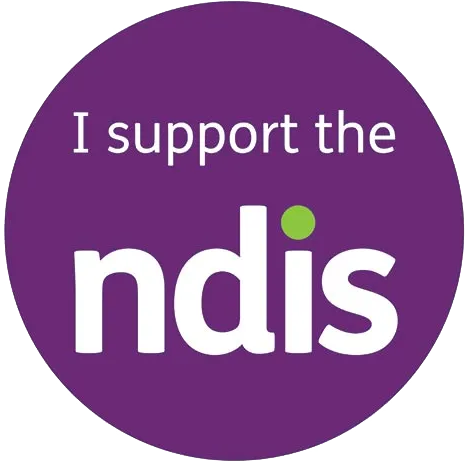Australia’s National Disability Insurance Scheme (NDIS) represents an unprecedented evolution of disability services delivery, breaking free from conventional insurance models by placing individuals with disabilities first through personalised support services and treatment plans which emphasize empowerment. This article provides a thorough understanding about NDIS whether you are a participant, provider, or someone interested to know more about NDIS.
What is NDIS
The NDIS is also known as the National Disability Insurance Scheme, is an important program in Australia designed to provide support and services to people who have disabilities. It was established with the aim to improve the lives of people living with disabilities and the families they share with. NDIS is founded on the principle of providing appropriate and essential assistance and personalised support services based on individual requirements
Eligibility Criteria
In order to qualify for NDIS assistance, individuals must satisfy specific eligibility requirements. One such condition involves permanent disabilities that severely limit participation in daily life activities. The procedure of determining eligibility requires tests and documentation, and support is provided to help applicants navigate the procedure.
NDIS support and service
NDIS offers a variety of support and services that are tailored to meet the various demands of its participants. They include financial assistance for equipment, therapies as well as personalised support services and many more. NDIS plans are developed in collaboration with the beneficiaries to address their individual goals and ambitions to promote the independence and inclusion of all.
Management and planning NDIS plans
Effective planning and management is essential to maximise the advantages of the NDIS plan. Participants are urged to establish specific goals and objectives, that form the foundation of your support programs ensuring personalised support services for your needs. Regular reviews and modifications make sure that the strategy stays pertinent and responsive to changes in demands.
There are two main funding approaches within NDIS plans:
- Managed plans: An NDIS-approved provider manages your funding and pays service providers on your behalf.
- Individual plans: You manage your funding directly and pay service providers yourself.
Navigating the NDIS Portal and Resources for Assistance
The NDIS online portal offers a user-friendly platform for participants to view their plan, manage their funding and make contact to service suppliers. Furthermore, a variety of resources are readily available to assist participants in understanding and using the scheme efficiently.
Challenges and FAQS
Although NDIS has many advantages, getting the most out of the scheme can be a challenge. Common obstacles include understanding eligibility requirements as well as planning and finding suitable services – for which this guide intends to provide knowledge and assistance in form of answers to frequently-asked questions that help clarify any lingering confusions or concerns.
FAQs:
What are the specific requirements to qualify for NDIS support?
To be eligible for NDIS assistance in Australia, you must be:
- An Australian citizen or permanent resident with valid visa.
- Between 9 to 65 years old.
- A permanent impairment that significantly limits daily activities; such as physical, cognitive, intellectual, sensory, neurological or psychosocial impairments that have an adverse impact.
How long does the NDIS eligibility process take?
The NDIS eligibility process may differ according to your specific situation. The process typically begins with an access request then tests to determine your eligibility. The NDIS website reveals that it takes between 2 and 4 months to process.
I have a temporary disability. Can I still get NDIS support?
NDIS is generally for people with permanent disabilities. However, there are some exceptions for children with developmental issues and require early intervention.
How much funding can I expect in my NDIS plan?
Your exact NDIS funding depends upon your individual requirements and goals; there’s no set figure that dictates their allocation; rather, the NDIS assesses them accordingly before allocating funds accordingly.
How do I develop goals for my NDIS plan?
The process of setting targets for your NDIS plan is an essential step. This can be accomplished by looking at areas in which you would like to see improvements in your everyday life. It could be related to:
- Greater independence
- Better communication
- More participation in community-based activities
It is recommended to meet with your Local Area Coordinator (LAC) or planners so they can assist with creating a plan tailored specifically to your goals.
What should I do if I disagree with my NDIS funding decision?
If you are not satisfied with your NDIS funding decision You are entitled to appeal. The NDIS website offers information on appeals procedure.
How can I find reliable NDIS service providers in my area?
The National Disability Information and Service website allows users to search for NDIS providers near their area; here you’ll be able to search registered providers who offer NDIS service provision.
How often should I review and update my NDIS plan?
Your NDIS policy should be seen as an evolving document which needs to be regularly assessed in order to meet your current goals and needs. At minimum it should be reviewed every year or more often should circumstances alter significantly.
How long do NDIS payment take?
NDIS payments don’t usually directly reach the beneficiaries. In fact, NDIS is a system of reimbursement. That means that you must pay for NDIS-approved support in advance (e.g. therapy sessions or assistive devices, etc.).
You can claim reimbursement through the NDIS portal by submitting receipts and invoices. Get your money back within 2 business days if the claim is accepted.
Be aware that if you select NDIS program management the service provider might manage a portion of the reimbursement for you.
Is adhd covered by NDIS
NDIS generally does not provide coverage for ADHD by itself as it doesn’t be able to meet the requirements for permanence. But, you may be eligible for the NDIS in the following circumstances:
- Your ADHD may be a result of another permanent impairment, such as autism, intellectual disability or learning disabilities.
- Your ADHD affects your daily activities to the point that you need ongoing help.
It is recommended that you discuss your circumstances to an NDIS National Contact Centre or Local Area Coordinator (LAC) to get a better understanding regarding your status.
What can NDIS funding be used for
NDIS funding is distributed according to your personal needs and objectives as described within the NDIS plan. The most common uses of NDIS funding include:
- Therapeutic support
- Daily living assistance
- Assistive technology
- Modified housing
This is not a complete list. The NDIS website has an extensive guide to how your money can be utilised.
Conclusion
In conclusion,for individuals living with disabilities and their families as well as service providers to access needed assistance and personalised support services effectively from NDIS it is vitally important that they are knowledgeable of its purpose, eligibility criteria, available support services and management strategies. This comprehensive guide aims to empower individuals, families, and service providers in their journey with the NDIS.
Disclaimer: The information provided is a summary. For comprehensive details, visit the NDIS website.










